Thick as Thieves is instantly one of my most-anticipated games, and every Thief fan should be backstabbing that wishlist button
If you love multiplayer games but couldn't care less about your kill-death ratio, Thick as Thieves might be your game.
As of tonight, Warren Spector's studio can claim it has one of the world's most ambitious game concepts: four-player multiplayer Thief.
Thick as Thieves, revealed today, is a PvPvE first-person stealth game coming in 2026. As I see the game in Los Angeles one day before it's announced at The Game Awards, creators OtherSide Entertainment are saying all the right things to me about their creative approach.
You're a thief infiltrating a dense city, trying to beat other players to a valuable item at the center of a shared mission. "Everything in the game is systemic" and prioritizes player creativity across 20–30-minute sessions. Each run, with the help of shuffled enemies and elements, will feel different (perhaps the most frequently made promise over the history of videogames). Deception and cleverness will supersede combat; although you can certainly knock your competitors out of the game with a handful of combat tools, this is a game that wants to dwell in the more cerebral spaces of environmental awareness, listening, and planning, rather than DPS.
"Immersive sims are about finding your own solutions to problems and thinking creatively. Everything in our game is built to empower that you might come into the game with your idea of like what makes a best the best master thief, what tools you're going to use what abilities what route through the level, how are you going to react to situations," says David McDonough, the game's lead designer, as I watch some early gameplay footage.
If you're a Thief, Deus Ex, or Dishonored person, this is all music to your ears, and that's no coincidence: several of the folks who founded the immersive sim genre are collected in OtherSide Entertainment: Greg LoPiccolo (Thief, System Shock), Paul Neurath (Ultima Underworld, Thief, System Shock 2), and his frequent collaborator Warren Spector.
Spector says he and Neurath founded OtherSide with the explicit goal of taking immersive sims "to the next level, see that the genre continued, and that it continued to evolve." Thick as Thieves is that evolution, says Spector. "For years, I've been thinking the next logical step was multiplayer."
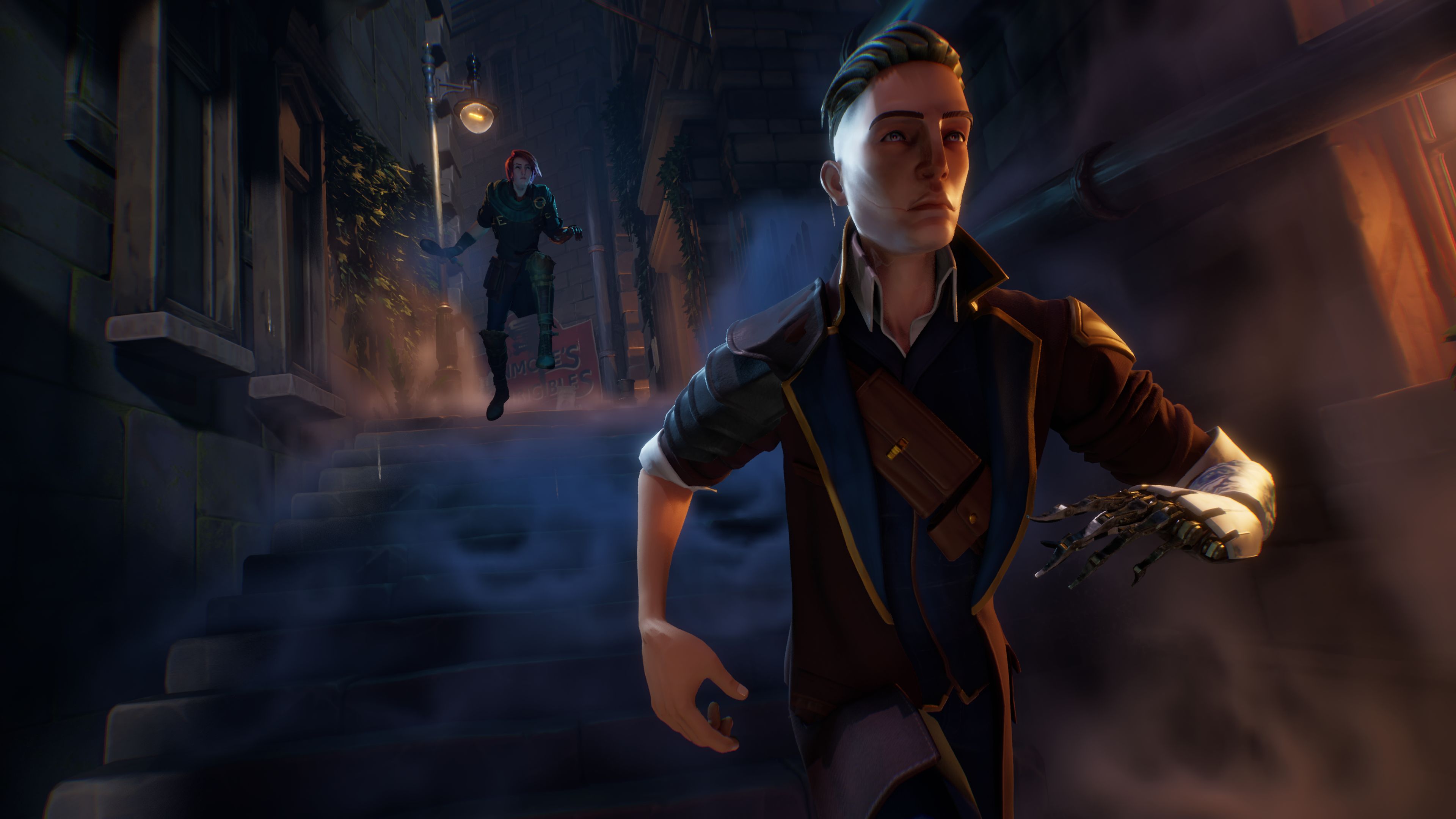
Adapting the intricate design of immersive sims to a competitive format is a massive creative undertaking, so perhaps it's not surprising that Thick as Thieves is sticking with the relatively familiar setting of a fictional, early 1910s UK city.
The biggest gaming news, reviews and hardware deals
Keep up to date with the most important stories and the best deals, as picked by the PC Gamer team.
The dense, 5x5-block neighborhood I'm shown wouldn't be out of place at all in Dishonored 2 or Thief. It features infiltratable indoor areas, trawlable sewers, train stations, offices, dwellings, and rooftop ledges begging to be grapple-hooked.
The setting "marries the kind of old world stone aesthetic and street layout of the beginning of modern, sort of the jazz age type stuff. So neon, steam, but also radio, automobiles, electricity," says McDonough. Enough technology for thieves to tamper with, in other words, but not so much that Thick as Thieves drifts into James Bond gadgetry.
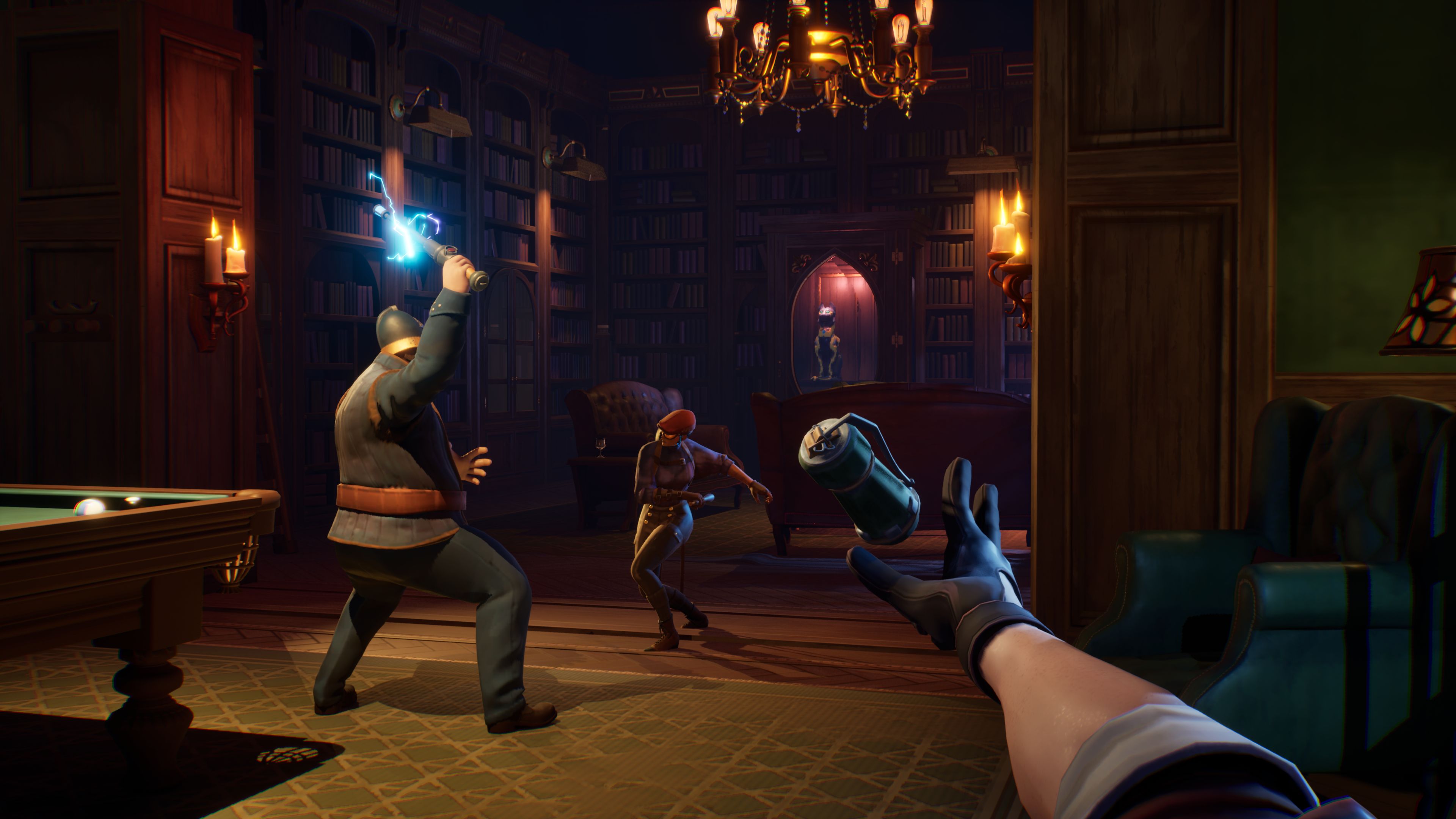
You and your rival thieves are members of a guild, and although each unique thief will carry their own signature item that only they can bring into a match, like that grappling hook, these aren't character classes, per se, but "named individuals with backstories and a story to tell." McDonough says he thinks the studio has a "somewhat novel approach to narrative, where the world is a story and you can play quests that are about the guild or the political forces or the other actors in the city. But you can also play your own personal story, which manifests as quests that you can pursue in these missions kind of, you know, alongside the normal objectives."
Your rivals are in the mix trying to accomplish similar or related objectives and all of your activities influence each other
David McDonough, lead designer
There's also magic in this universe, but don't expect to be casting splashy abilities with cooldowns: it's more Thief than Dishonored. One of your five carried tools might be a pickpocketing fairy you carry around in a jar, but there's nothing as Gandalffy as an invisibility spell.
"The thieves are not wizards," says McDonough. "Magic is grounded in like objects or devices or places in the world." The Chameleon, one of the thief character templates, has a disguise kit that lets you perfectly imitate the appearance of another character, but "It's magical in a way that still makes sense in the landscape of the things you're gonna do, but it can be countered by another player, they can see it through it, they can undo it, they don't just have to, like, flee when the fireball comes or something like that. And that's how we think of magic," says McDonough.

In the demo, I see one of the more straightforward ways one player can eliminate another. Behind a metal door in the sewer, our thief reaches one of the preliminary objects that would serve as a clue to the location of the main objective—the thing all the thieves are hoping to walk away with. Just inside the door of the room, they place a knockout gas bulb and lie in wait. A moment later we can just barely hear an opposing thief lockpicking the door to our left. When they step in, the knockout gas (which can be thrown as well as placed) goes off as a proximity bomb, disorienting the enemy and lining them up for a relatively easy KO from behind.
"That's the core concept, the context contest of craftiness, the central idea of Thick as Thieves is what if all of the great stealth gameplay, all of the like cunning and manipulation and caution and the things that make a Thief game rich, we had, but your opponents were not only [sources of] security, and AI, and level design, but other thieves that are just as smart as you trying to do the same thing. Your rivals are in the mix trying to accomplish similar or related objectives and all of your activities influence each other," says McDonough.
I don't see many NPCs in the few minutes of early gameplay OtherSide shows me, but game director Greg LoPiccolo says that you probably shouldn't expect to be murdering your way through piles of guards like in Assassin's Creed. "They're pretty threatening," LoPiccolo says of the game's guards.
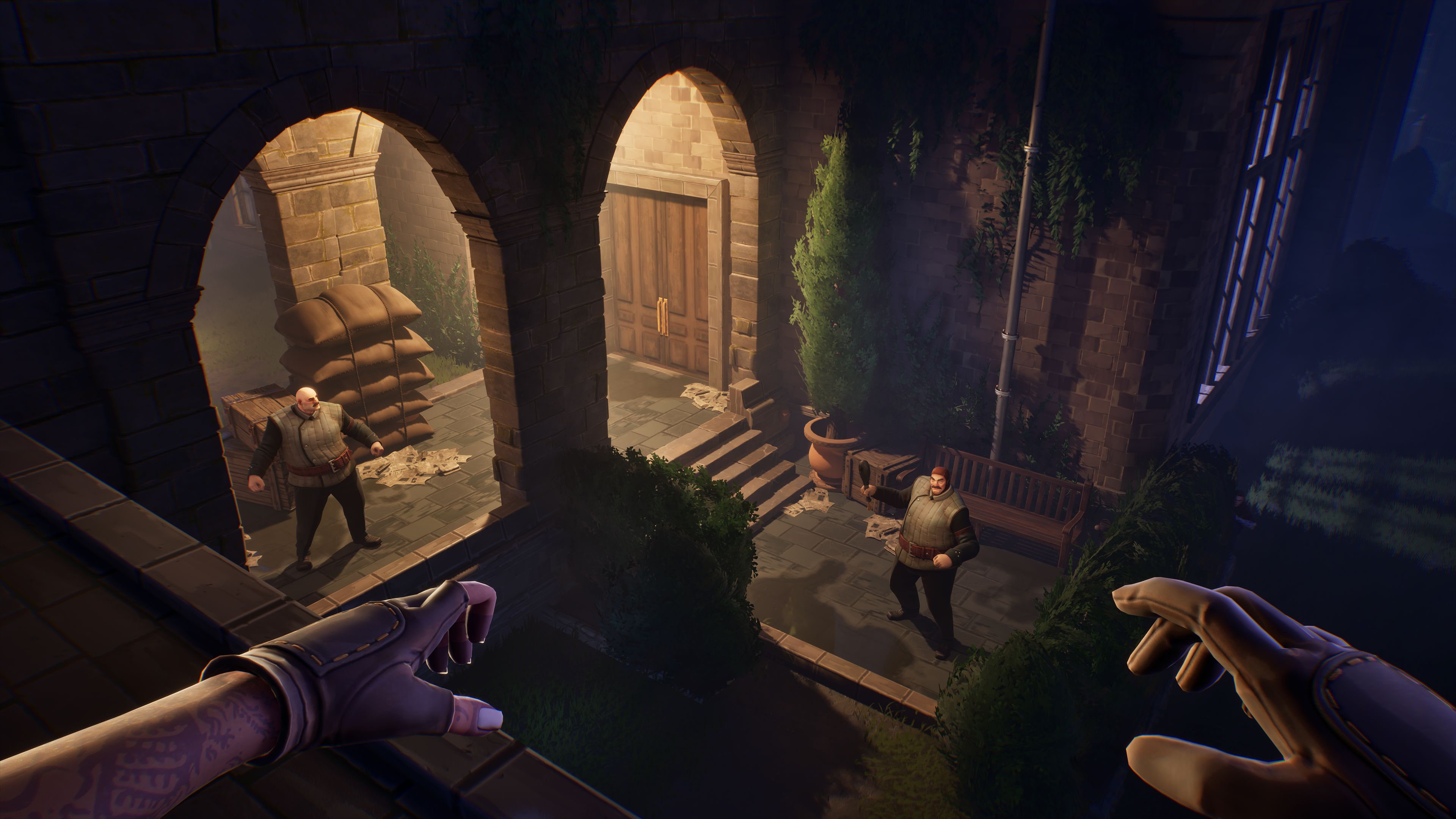
"One on one, you could certainly sneak up on an unaware guard, and there's a lot of opportunities to do that. That's pretty satisfying. Or pickpocket them to get their keys and so forth. But once you get two, three, four guards, you're probably done, like if you get cornered. And that's the way we've tuned it," LoPiccolo continues. "We don't want to build a game that's about PvP combat against guards, right? That's OK. You should lose those counters. A lot of what we're involved in now is building in a lot of contextual detail about guards telling each other that you might be around. Or if you disguise yourself as a guard, other guards coming to you and mentioning that you might be around, civilians warning guards. Civilians are powerless, but if you spook a civilian in their bedroom, they will fly up the stairs, and go find a guard to come back and kick your ass."
Will OtherSide's scheme work?
Despite their decades of legacy and significant influence, immersive sims are still seen as exotic animals by much of the gaming audience. I'm enthusiastic about Thick as Thieves, but I'm also skeptical that it can attract millions and millions of players, even if it walks and talks like a modern service game, as OtherSide plans.
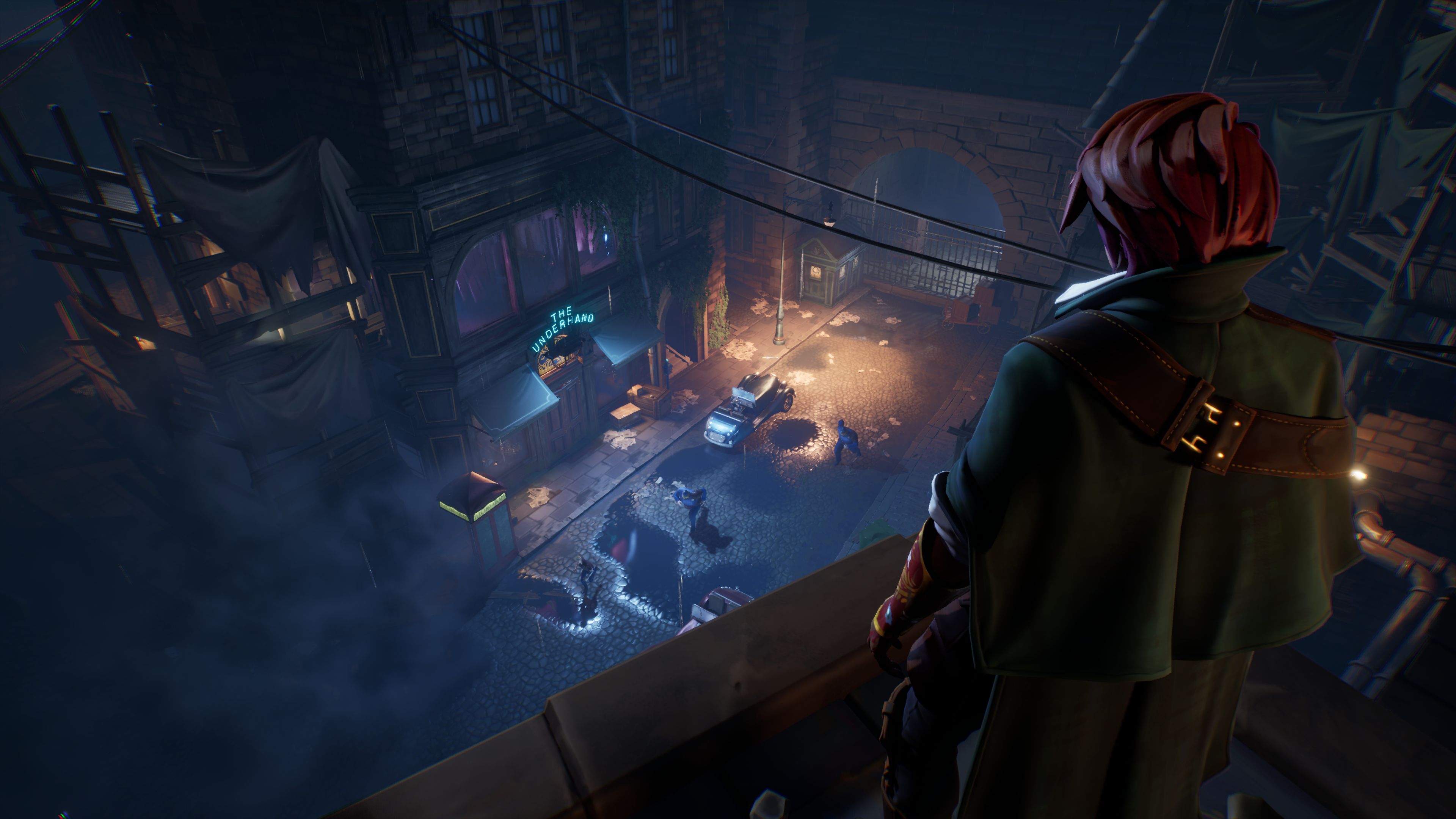
The precedent for games in this genre is small, and not encouraging. There've been only two recent multiplayer stealth-robbery games: Hood: Outlaws & Legends, a 2021 attempt to bring multiplayer to Assassin's Creed-style stealth which fizzled badly, and Deceive Inc., a spy-fi shooter by Sweet Bandits, who just earlier this month announced it was shutting its doors.
This is a game about competition, not about combat
Warren Spector, studio director
Why did Deceive Inc., an undeniably novel, creative FPS where players could disguise themselves as NPCs in a Hitman-style sprawling map, fail to find an audience? I asked the Thick as Thieves team if they played it, and if they had any theories.
"It's fundamentally a shooter, you succeed or fail, mainly on your combat ability," McDonough says of Deceive Inc. "The amount of variability between missions was a lot less than what we have [in Thick as Thieves]. And in terms of level design and sort of the symmetry of objectives, it did tend to boil down to kind of a battle royale at the extraction point for whoever won. … At the end, I think it indexed a bit too much on being a team shooter and ended up not differentiating itself enough. And we have started on a different trajectory from the very beginning, like we don't want to be thought of as a shooter."
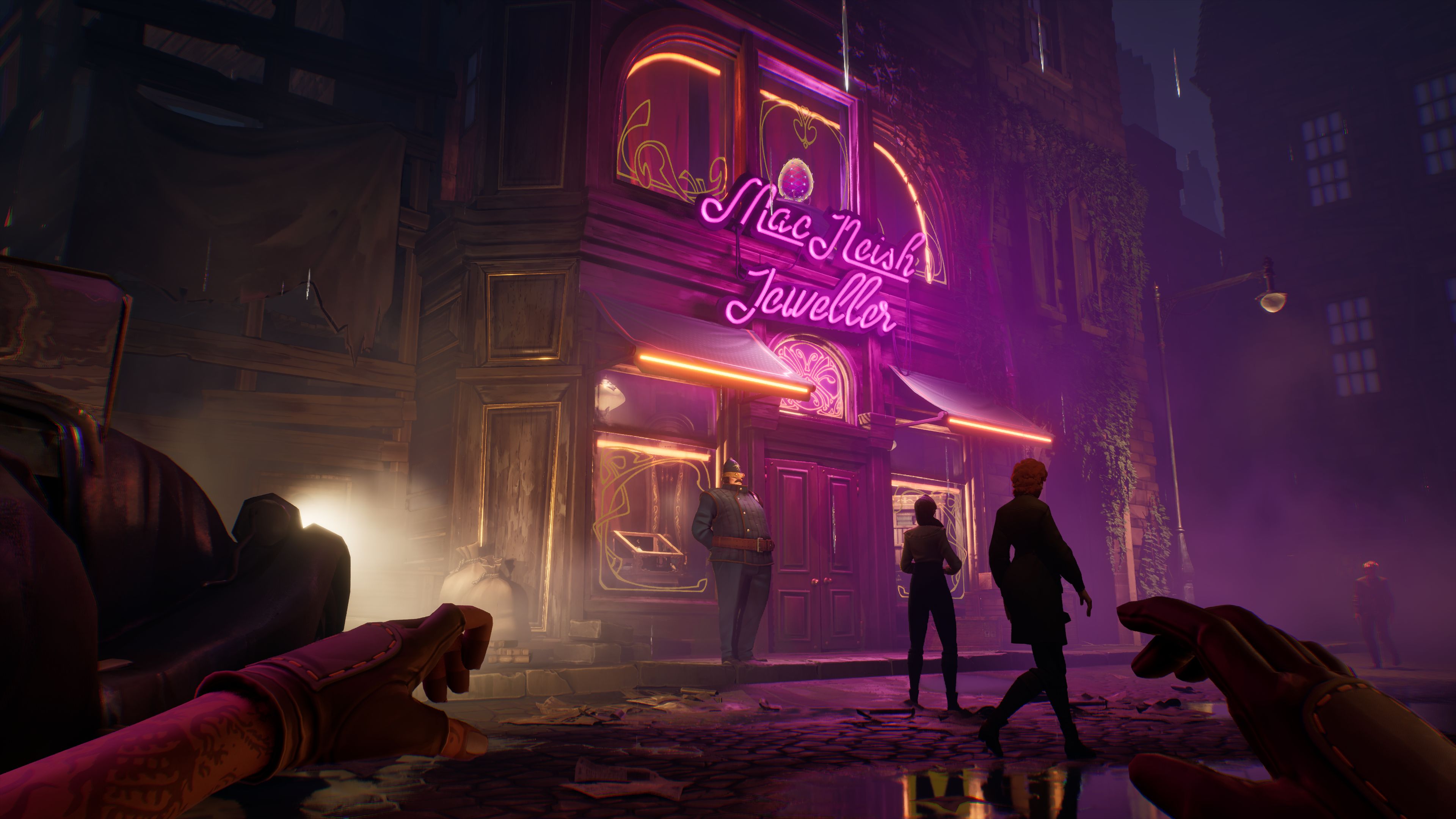
Spector adds, "This is a game about competition, not about combat. We allow combat in a very loose sort of way, again, because we want to support a variety of play styles and player choices. But the competitive element of it is really powerful."
"It's exciting and kind of terrifying, right? Because we are solving some, you know, some fairly challenging design problems where you get this like emergent, highly volatile world with a lot going on that you can't predict," LoPiccolo says of what the team is building. "But you know, when it works, it's pretty magical, because these like detailed scenarios unfold with reversals and surprises and breakthroughs that really feel like they were scripted."
What OtherSide hopes is that putting a wider set of more interesting verbs than "kill" will appeal to players. "You can ambush, you can stalk, you can hunt, you can knock other thieves out to eliminate the competition or to steal what they're carrying. But you can also compete indirectly, you can use the environment against them, you can get guards to catch them or chase them, lock them out of rooms, inhibit their stealth," says McDonough. "We imagine a game where one player can kick in the door, knock everybody out, smash through the display case, and then jump out the window. And another player can be hiding in the rafters the whole time watching that and nobody even knows that they're there. And both of those play styles are equally valid and will compete directly with each other."

Evan's a hardcore FPS enthusiast who joined PC Gamer in 2008. After an era spent publishing reviews, news, and cover features, he now oversees editorial operations for PC Gamer worldwide, including setting policy, training, and editing stories written by the wider team. His most-played FPSes are CS:GO, Team Fortress 2, Team Fortress Classic, Rainbow Six Siege, and Arma 2. His first multiplayer FPS was Quake 2, played on serial LAN in his uncle's basement, the ideal conditions for instilling a lifelong fondness for fragging. Evan also leads production of the PC Gaming Show, the annual E3 showcase event dedicated to PC gaming.


